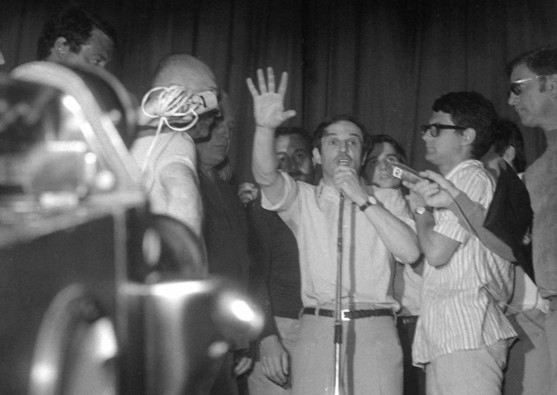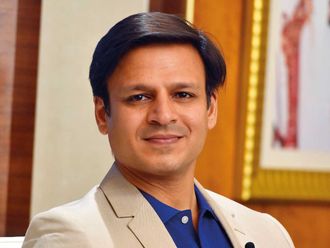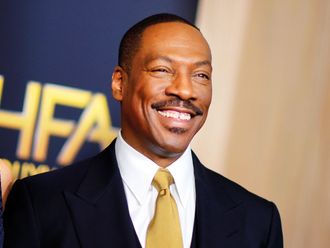
Paris: Following is a selection of facts about the Cannes Film Festival, which runs from May 15 to 26:
LIGHTS, CAMERA... STOP! The first Cannes Film Festival opened on September 1, 1939 under the aegis of Louis Lumiere, who with his brother Auguste was the world’s earliest film maker. Fancy art-deco posters were commissioned, one of the Riviera resort town’s casinos agreed to act as the venue, and a clutch of French and foreign films was lined up for screening, including The Wizard of Oz.
But the date could not have been more fateful: World War II broke out and the festival was scrapped after less than 48 hours, with the screening of only one film, Hollywood’s The Hunchback of Notre Dame. The event was relaunched in September 1946, with British director David Lean’s Brief Encounter among the showings.
GLAMOUR AND GLITZ: Cannes’ reputation as a magnet for stars and jetsetters dates back to the mid-1950s, but in those days things were pretty relaxed. “The stars would walk along the seafront mingling with the public,” recalls Gilles Jacob, 82, the festival’s long-time president.
Today, the 12-day festival is a media whirlwind, with the stars making choreographed appearances with a police escort.
NEW TALENT: Cannes prides itself on showcasing emerging directors. French “New Wave” icon Francois Truffaut walked off with the Palme d’Or (Golden Palm) at the age of just 28 for his autobiographical The 400 Blows. George Lucas, Ken Loach, Steven Soderbergh and Quentin Tarantino all showed their first features at Cannes, respectively THX1138, Family Life, Sex, Lies and Videotape and Reservoir Dogs.
CANNES CONTROVERSIES: Polemic is as much a part of the Cannes scenery as empty champagne bottles.
In the Cold War of the 1950s, several provocative films about colonialism or Nazi death camps were hastily pulled to keep the diplomatic peace.
In 1968, a Czech-born film maker was unable to go home because of the Soviet invasion in Prague. That year, as student protests erupted in Paris, Jean-Luc Godard and Truffaut hung onto the curtains to stop a disputed screening, and the festival closed five days early.
BOOS MAKE NEWS: A Cannes tradition is the media’s close scrutiny of how a film is received at a festival screening. Hisses and catcalls are characteristic of the event, reflecting deep passions about film-making -- as well as partisan sentiments about favoured directors.
Getting booed at Cannes may be a director’s nightmare, but it does not mean a movie is doomed. Michelangelo Antonioni’s L’Avventura (1960), Truffaut’s La Peau Douce (1964) and Robert Bresson’s L’Argent (1983) are among the films that initially received a heckling but came to be regarded as masterpieces.
KICKED OUT: Lars Von Trier’s expulsion in 2011, after telling a press conference he “sympathised with Hitler, a little bit” means he joins the long-forgotten Simone Sylva, a 1950s French starlet who posed topless on the beach with Robert Mitchum, much to the fury of the Cannes top brass. Following her own ejection, Sylva’s career hit the buffers. She died of a stroke a few years later at just 29.












